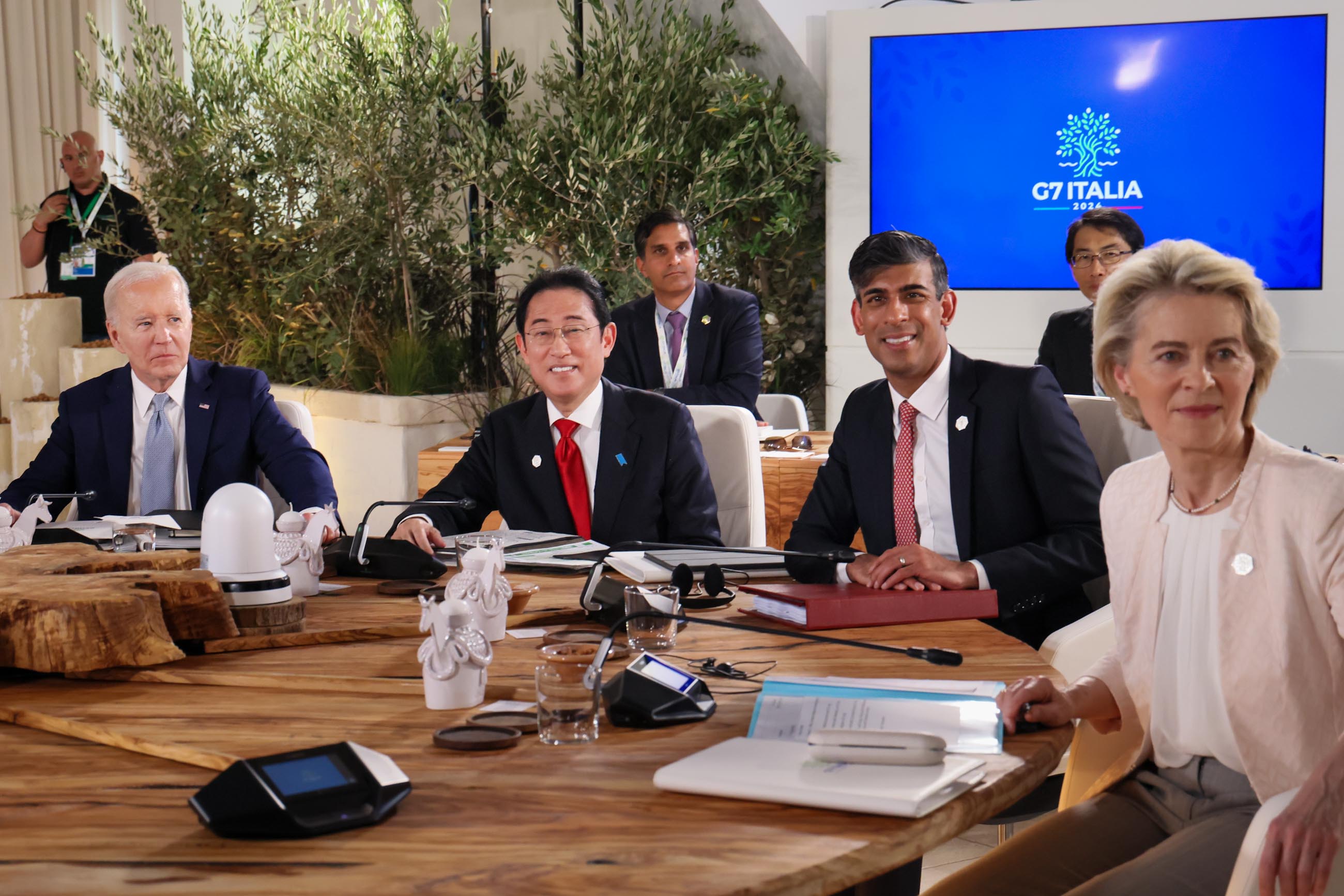G7 Apulia Summit Session 1 “Africa, Climate Change and Development” (Summary)
[Provisional translation]
On June 13, commencing at 11:30 a.m. (local time; 6:30 p.m. JST), Mr. KISHIDA Fumio, Prime Minister of Japan, attended the G7 Apulia Summit Session 1 “Africa, climate change and development,” for approximately 80 minutes. The overview is as follows.
1. Prime Minister Kishida stated that, amidst the multiple crises the international community is facing, the two perspectives that were emphasized at the G7 Hiroshima Summit last year, namely, upholding the free and open international order based on the rule of law and strengthening relations with partners beyond the G7 in particular the Global South, are now becoming even more important as the world faces new challenges such as the continuation of Russia’s aggression against Ukraine and the growing tension of the Middle East situation. Prime Minister Kishida welcomed that these perspectives were succeeded to the G7 Italian Presidency this year and expressed his intention to reiterate to the world that the G7 is taking the lead in response to the various issues facing the international community.
2. Africa
(1) Prime Minister Kishida emphasized the importance of enhancing cooperation in line with African voices, stating that while continuing to further promote such initiatives as the Partnership for Global Infrastructure and Investment (PGII) along with Africa’s needs, G7 members should coordinate their own efforts to create synergy. He also introduced that Japan views Africa as a partner growing together and has supported Africa from this perspective through the Tokyo International Conference on African Development (TICAD) processfor more than 30 years. Prime Minister Kishida also stated that Japan will seek to further strengthen the collaboration with African countries at the 9th TICAD (TICAD 9), which is scheduled to be held in August next year, and emphasized his intention to connect the outcomes of this G7 Summit to the TICAD.
(2) Prime Minister Kishida stated that the response to the G20, of which South Africa will be the next Presidency, is another important matter, and emphasized that it is necessary to listen to African voices more than ever before as the African Union (AU) has also officially joined the G20. In addition, Prime Minister Kishida pointed out that the global governance reform, which has become a major agenda for the G20, is being called for also by Africa, and stated that the G7 should commit to strengthening the functions of the United Nations (UN) including the Security Council reform toward the Summit of the Future in September and the 80th anniversary of the UN next year and demonstrate its intention to making a concrete contribution. He further stated that Africa has high expectations for the Multilateral Development Banks (MDBs) reform and that he would like to work together with the G7.
3. Climate change
(1) Prime Minister Kishida pointed out that Africa is facing serious and imminent threats such as floods, drought, and sea level rise caused by climate change and that these disasters and changes in the natural environment are causing people to become internally displaced or to migrate outside their countries. He explained that Japan has provided various assistance to Africa, including on responses to such situations.
(2) Prime Minister Kishida stated that it is necessary to promote actions on climate change in the whole world, from the perspective of ensuring sustainable development for Africa too, and that it is important that while the G7 continues to stand at the forefront, major emitters also implement emission reductions. Additionally, Prime Minister Kishida stated that it is necessary to strategically address assistance for strengthening adaptation and resilience in vulnerable countries including those in Africa. Regarding the global efforts on climate finance, he introduced Japan’s own efforts and pointed out the necessity of establishing a framework under which major economies other than developed countries can appropriately contribute.
4. Development
Prime Minister Kishida pointed out that, in advancing the efforts mentioned above, it is important to continue to focus on achieving the SDGs while emphasizing human dignity and human security.
He also stated that he hopes to continue to demonstrate tangible results through the progress in MDBs reform, including the effective distribution of highly concessional development funds to developing countries.
5. Gender
Prime Minister Kishida explained that the G7 confirmed the promotion of gender mainstreaming at the G7 Hiroshima Summit last year, and that Japan has been focusing on discussions on gender equality in a broad range of areas, hoping that the G7 continues to demonstrate such commitment.
He also observed that at a time when armed conflict and natural disasters are occurring frequently around the world, the promotion of Women, Peace and Security (WPS) is of increasing importance.
He further stated that it is necessary to defend the rights of women and girls in crisis situations, including in Africa in particular, and that he would like to further advance G7 efforts.
6. G7 Leaders confirmed that the G7 will work even more closely to address issues including climate change and development in line with African voices.
